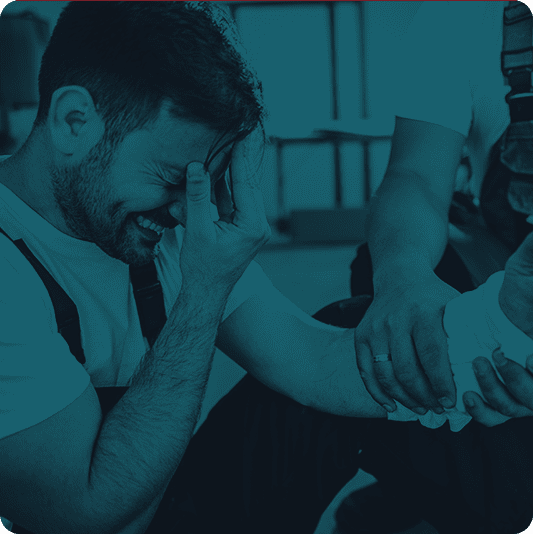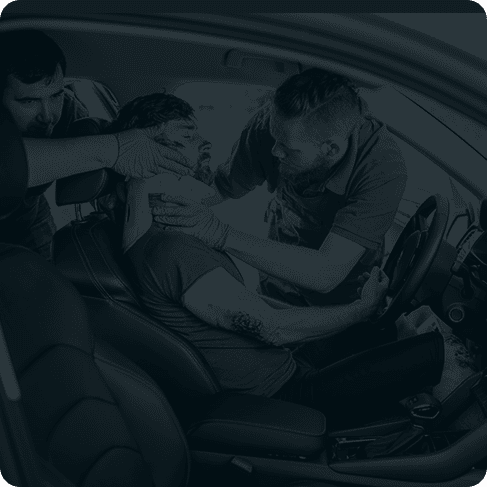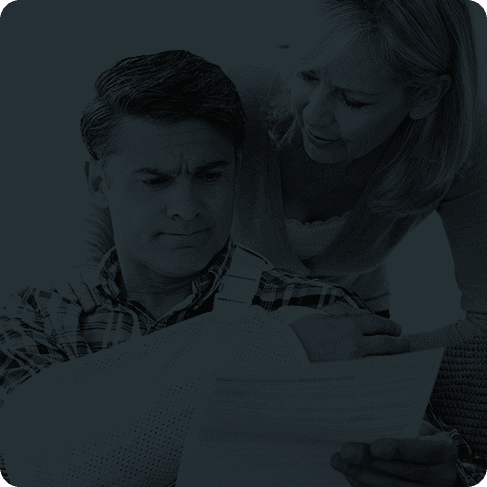If you are injured due to a boating accident, it is important to know your legal rights under Florida law. The first step in seeking compensation for injuries sustained in a serious boating accident is to consult with a Florida boating accident lawyer. An experienced boating accident attorney will help you understand what happened and how to proceed.
How Do You Know if You Need a Florida Boating Accident Attorney?
A boating accident attorney will be able to tell you whether or not you have a case against the party responsible for causing the boat accident and how much money you could recover for your boating injuries. A qualified personal injury lawyer will fight to ensure you receive fair compensation for your injuries.
If you are injured in an accident caused by another person, it is important to contact a Florida boating accident attorney as soon as possible after the incident occurred. The sooner you can get legal representation, the more likely you will receive compensation for your injuries.
Choosing the Best Boating Accident Lawyer in FL
Thousands of attorneys across the state specialize in personal injury cases. Some focus exclusively on maritime law, while others work mostly on car crashes and plane crashes. A good Florida boat accident attorney knows how to navigate the complex court system and know how to negotiate settlements with insurance companies.
In addition to knowing your case type, you want to ensure your lawyer has the skills necessary to win your case. An experienced lawyer will understand Florida’s laws on boat safety, product liability, and negligence. They will also know how to build a strong case based on extensive resources and expert testimony. Finally, they will know how to effectively communicate with clients to ensure they fully understand the process and outcome of their case.
Florida Maritime Laws and Boating Regulations
Boating laws and regulations mean more customers’ frustration because boating is a large portion of Florida’s recreational and tourism industries. There is no minimum age requirement for boating. If born before 1988, you don’t need a license or boating safety training.
Many Florida boaters are not properly trained or licensed in boating safety, which makes boating accidents even more severe.
Many Florida residents and lawyers are unaware that public waterway accidents fall under federal admiralty jurisdiction. It may mean that the case has to be brought into Florida’s state court system, which has different judicial procedures.
Different sets of laws apply to injuries sustained from boat and cruise accidents. Therefore, your Florida Personal Injury and Maritime Law Attorney must know which standards to follow when filing a compensation claim.
For example, if you’re suing someone for negligence and filing a personal injury lawsuit, you may need to use the admiralty standards instead of the car accident standards.
You need an experienced boating accident attorney who has experience practicing in federal court. Not every lawyer can provide you with the services you need.
Common Florida Boat Accidents
Florida has some of the best boating conditions in the world, but it also has one of the worst records for boating accidents. In 2019, the National Marine Manufacturers Association (NMMA) reported over 930 thousand boats were registered in the state. In 2021 alone, roughly 60 boating-related deaths alone were reported.
The most common Florida boat accidents are due to:
- Falling overboard
- Collisions with other water vessels
- Capsizing
- Collisions with a fixed object
- Flooding (swamping)
Causes of Boating Accidents in Florida
With people from around the world visiting Florida for its water-based tourism and recreation, we’ve seen several common reasons for boat accidents. Read below for the top causes of boating accidents.
Negligence
A boat operator could be found negligent if he or she did something wrong that caused you harm. Negligence cases are usually filed because someone failed to do what they should have done. This failure might include failing to use reasonable care or careless operation while driving a boat, such as following safe speeds, obeying traffic signals, or other safety laws. If you believe a boat operator negligently operated his or her vessel, contact our law firm today. We’ll review your situation and help determine how best to proceed.
Boating Under the Influence
In Florida, it is illegal to operate a boat while under the influence of drugs or alcohol. This is true whether you are driving your personal watercraft or commercial vessels. Operating a vessel while intoxicated will result in a boating under the influence charge. Depending on the level of crime, i.e., property damage or bodily injury due to driving under the influence, you could either face a misdemeanor or a felony and serve up to five years in jail.
You could be liable for damages if someone else gets injured because of your actions. This includes injuries sustained due to negligent operation of the boat, including those caused by intoxication.
This is why it is important to call us immediately following your boating accident. Our team of lawyers has the legal experience to help determine what happened and how to proceed.
Captain or Pilot Error
A captain, pilot, or skipper is usually in charge of every aspect of a vessel. However, many accidents occur due to human error, such as failure to follow proper procedures, use of unsafe equipment, or lack of training. In some cases, it is possible to hold the captain personally liable for negligence even though they had no control over the other person.
If you were injured because of a mistake the captain made that led to the accident, you could file a claim against the captain. You might also be able to sue the captain for negligence and recover damages for medical bills, lost wages, pain and suffering, emotional distress, and property damage.
The captain is also responsible for his or her employees. For example, if a crew member fails to properly secure cargo, causing it to fall off the ship during rough seas, the captain can be held accountable for the physical injury. Likewise, if a crew member fails to perform routine cleaning duties, the captain could be sued for allowing a hazardous environment to exist on board the ship.
Accidents at Docks and Marinas
Many people don’t realize that boat accidents can happen even when a boat is docked or moored. Boat accidents can happen anywhere, including at a marina or dock where boat owners park their vessels. A boat accident might involve someone getting injured on board a vessel or due to poor maintenance.
While boat accidents on the water tend to be more common, many types of boat accidents can happen off the water. Accidents involving boats being launched from a boat ramp can cause injuries to boaters and bystanders. Boats can break down or sink, causing damage to nearby structures or drowning people. Boating accidents can also occur when a boat collides with another object, such as a dock or pier. These kinds of accidents can lead to serious injury or death.
A marina or dock accident could be the property owner’s fault since most of them are privately owned, and it’s possible for boat owners to rent a slip for their vessels. You could become severely injured if their dock or marina is not properly maintained. If you suffered injuries due to a boat owner’s failure to maintain their property, contact one of our experienced Florida boating accident attorneys.
Recoverable Damages
If you are injured while operating a vessel, you might be able to collect certain types of compensatory damages, including lost wages, medical expenses, and pain and suffering. In addition, you may be entitled to recover punitive damages if the negligence of another party caused your boating accident injury.
You must initiate your boat accident lawsuit within four years of the date of the incident. However, if a family member dies from a boating accident, you can file a claim against your decedent’s estate. This type of claim is known as a “wrongful death” action.
According to section 768.28, the statute of limitations on wrongful death actions is two years.
Economic Damages
When people begin calculating damages, many tend to start with their economic damages. These are your financial losses or losses connected to a pre-determined monetary value. They can include things like lost wages, costs related to missed workdays, loss of earning potential, and even future earnings.
This should also be covered if your injuries require any follow-up care like physical rehabilitation or ongoing checkups.
Further economic damages for boat accident victims could include property damage or lost belongings that were on your boat during the accident.
Non-Economic Damages
What about emotional damages? What about pain and suffering? How do we calculate those?
The answer depends on whether or not you suffered a permanent disability or catastrophic injury. Permanent disabilities are defined as those that prevent you from doing something you could normally do. In some cases, the person might still be able to work but cannot perform certain tasks anymore. A common example of this is someone who loses one leg. They might be able to walk around just fine, but they won’t be able to climb stairs without help.
Other examples include losing a limb, having a brain tumor removed, or being paralyzed. There are many different types of permanent disabilities, and each type requires a separate calculation.
If you don’t suffer a permanent disability, there are still ways to calculate your emotional damages. You can use the same method for economic damages, but you must consider the impact of the watercraft accident on your life.
For instance, did you lose sleep over worrying about the accident? Did you feel depressed because you couldn’t participate in activities you enjoy? Were you unable to spend time with family members? All of these factors can contribute to your emotional damage.
You can also claim emotional damages if you had to change jobs due to the accident. In addition, you can collect emotional damages if you experience anxiety or stress over the possibility of future accidents.
Contact a Florida Personal Injury Attorney Today
If you or a loved one was injured in a boating incident, especially by an inexperienced boater, we at Denmon Pearlman could help you recover monetary compensation. We have the Florida boat accident lawyers you need to analyze your boating accident claim and get you the compensation that you deserve. Our legal team knows how best to litigate your boat crash lawsuit according to federal admiralty law when necessary. We can help sort through insurance and liability issues after a boating accident in Florida. Call us today to schedule a free initial consultation with one of our knowledgeable and experienced boat accident attorneys to discuss your case.
FAQs
What is the most common boat accident?
The most common boating accident reported by the Florida Fish and Wildlife Conservation Commission is a collision with another vessel.
What is the case of most fatal boating accidents?
According to the U.S. Coast Guard, falling overboard or drowning is the most fatal boating accident.
How long do you have to contact a lawyer after an accident in Florida?
There is currently a four-year statute of limitations for filing a boat accident claim in Florida.
What is the legal reason to report a boating accident in Florida?
Florida law requires a written boating accident reporting form to be completed when an accident occurs that results in:
- Bodily injury
- Death
- A person’s disappearance
- Property damage of $2,000 or more
What are boat operators required to do when involved in an accident in Florida?
Under Florida Statute 327.30, if you’re involved in an accident or collision, you must stop your boat and remain at the scene until the police arrive. However, if there is a danger to the safety of everyone on board or the watercraft, the boater can move.
Even if you must avoid danger at all costs, ensure that you stay close enough to the scene to get back there quickly if things start going wrong. This law also requires anyone involved in an accident to provide assistance to anyone who is injured.
You can help by doing whatever you can to stop a wound from bleeding, get an injured person out of the water, and stabilize their condition until they receive medical attention. Make sure you always have a first aid kit on board for emergencies.
What type of report must be filed in a boating accident in Florida?
Under federal law, operators or owners of recreational vessels must file a boating accident report with the state reporting authority.
How do you respond to a boating accident?
Although we don’t like to think about it, it never hurts to be prepared for the worst. In case of a boating accident, follow these steps:
- Make sure everyone is okay and administer first aid if necessary. If any other vessels are involved, check that they’re okay too.
- Report the incident immediately by calling 911.
- Secure the scene if you can. If wreckage or any other debris is blocking a waterway, remove it if it is safe to do so. If it’s unsafe, wait for the police or Coast Guard to arrive.
- Write down everything that happened during the accident. It’s easy to forget important details after an accident, so writing them down will help you remember them later.
After experiencing an accident, go see a doctor. Even if you aren’t experiencing any symptoms at present, complications may occur in the future. A physician’s diagnosis will also be a crucial piece of evidence if you ever need to file a claim.
Our Expertise
We have your back. Whatever you might be suffering from, accidents, injuries or medical malpractice, we have you covered throughout Florida
Let’s get in touch!
The initial consultation is absolutely FREE
Denmon Pearlman
Law
Tampa Office
2504 W Crest Ave
Tampa, FL 33614
(813) 554-3232
Denmon Pearlman
Law
St. Petersburg Office
520 2nd Ave South
St. Petersburg, FL 33701
(727) 493-5610
Denmon Pearlman
Law
New Port Richey Office
5703 Main Street
New Port Richey, FL 34652
(727) 753-0049
Denmon Pearlman
Law
Brooksville Office
1790 E Jefferson St.
Brooksville, FL 34601
(352) 309-7354
Denmon Pearlman
Law
Seminole Office
5290 Seminole Blvd. Suite D
St. Petersburg, FL 33708




